
The Israeli-Palestinian conflict – a reading list
Tensions between Israel and Palestine again reached fever pitch in May, with hundreds of – mainly Palestinian – deaths as a result. Now that a ceasefire offers some respite, there is an opportunity to reflect on the history of the conflict. Are there lessons to be learned from the past? How do historians write about the conflict from different perspectives? What is it like to live in Israel as a Muslim or Christian? What role could or should the international community play in a possible peace process? What can we learn from previous peace negotiations? The list below consists of six authoritative analyses of the conflict and a novel, in which the warring nations and the ideology that informs the two sides are featured, written from various perspectives.
The conflict between Israel and Palestine has been going on for more than seventy years. Scholars have been studying the conflict for the same amount of time and have written countless books on the topic. That does not mean, however, that every analysis should be viewed as equally authoritative. Especially when studying the Israeli-Palestinian conflict, it is important to ask yourself certain questions while reading: Who wrote the book? Were the contents of the book influenced by the ideology of the author? And to what extent were scientific methods applied in writing it? In other words: one should apply source criticism. With these questions in mind, we selected these books, although none of the titles are written from a completely neutral standpoint. We therefore present the titles with context but leave it to the reader to judge the ultimate reliability of the source material.
All the books in the list below come from the collections of the Leiden University Libraries (UBL) but are only a selection of the hundreds of books that the UBL owns on this subject. All books below are available for loan by following the link under the title or by searching our Catalogue.
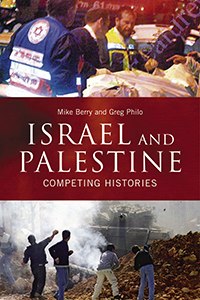
Mike Berry and Greg Philo, Israel and Palestine: Competing Histories.
London: Pluto Press, 2006
The Israeli-Palestinian conflict may very well be one of the most controversial in global politics. For this reason, Philo and Berry chose to not simply give a concise historical account. Instead, they have enriched their argument by discussing the various and often conflicting views on the major clashes, battles and developments in Palestine/Israel since the late 19th century. This book is helpful for readers who wish to gain both an overview of how the Israeli-Palestinianian conflict has unfolded and how it has been discussed.
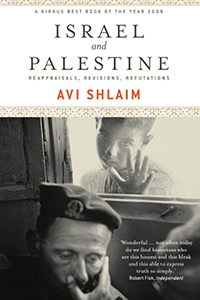
Avi Shlaim, Israel and Palestine: reappraisals, revisions, refutations.
London: Verso, 2019
This book, written by a Jewish-Israeli author of Iraqi descent, contains a collection of essays about the Israeli-Palestinian conflict, ordered chronologically and coherently, so that it can be used as a historic reference work. Avi Shlaim is counted, alongside Ilan Pappé and Benny Moris, among the 'New Historians', a group of Israeli historians who have taken an extremely critical stance on the traditional Zionist narrative. While recognizing Israel's right to exist and the legitimacy of its pre-1967 borders, Shlaim holds Israel particularly responsible for the perpetuation of the conflict. Naturally, the New Historians have also been criticized, for example by Israeli-British historian Efraim Karsh in his book Fabricating Israeli History: The “New Historians” (1997), in which he critiques three leading New Historians.
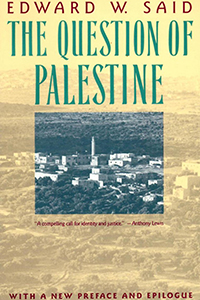
Edward Said, The Question of Palestine.
London: Routledge, 1980
Mostly known for his influential book Orientalism, Edward Said was also a commentator of the Israeli-Palestinian conflict and active in internal Palestinian politics. In The Question of Palestine, Said criticizes the orientalism that informs many Western views on the conflict, which up until the 1970s caused many Western governments and publics to focus on the Israeli view to the detriment of the views, experiences and sufferings of Palestinians. Just as Orientalism, this work was as influential as it was controversial. The library also provides access to later works by Said on the topic, such as From Oslo to Iraq and the Road Map (2004), as well as reviews, criticisms and reflections on Said’s narrative and claims.
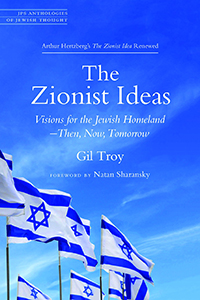
Gil Troy, The Zionist Ideas: Visions for the Jewish Homeland. Then, Now, Tomorrow.
Lincoln: The Jewish Publication Society, 2018
One of the things that is essential to understanding the Israeli-Palestinian conflict is the idea of Zionism: of the right to a Jewish Homeland in Israel. The goal of Troy’s edited volume is to introduce a plethora of Zionist thinkers, from the late 19th century to the present, and to highlight the diversity of the Zionist current of thought. The book is therefore chronologically divided into three sections, titled The Founders, The Builders, and The Torchbearers, while each section pays attention to six schools of thought within Zionism: Political, Labor, Revisionist, Religious, Cultural and Diaspora Zionism.
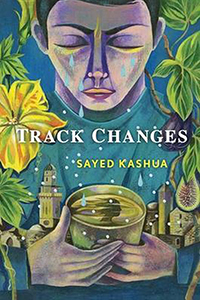
Sayed Kashua, עקוב אחר שינויים / Wijzigingen bijhouden / Track Changes.
Modi’in, 2017
In addition to the Palestinian residents of the West Bank and Gaza Strip, about 20% of Israel's population is Palestinian. This is the non-Jewish population of the Mandate of Palestine that remained within Israeli territory when the State of Israel was established in 1948 and that was provided with Israeli citizenship. Sayed Kashua is a Palestinian-Israeli writer who, although Arabic is his native language, has always written in Hebrew. His novels clearly show what it means to be a Palestinian in Israel. For a long time, Kashua dreamed of an Israel in which Jews and Arabs would be equal citizens, but in 2014 he gave up on his dream and emigrated to the United States. Track Changes is his most recent novel, and the Hebrew original as well as the Dutch and English translations are available for loan in at the UBL.
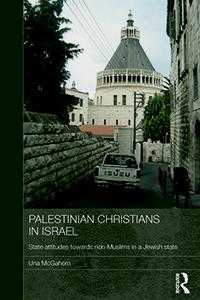
Una McGahern, Palestinian Christians in Israel: State Attitudes towards Non-Muslims in a Jewish State.
London: Routledge, 2011
Although the Israeli-Palestinian conflict is often viewed as a Jewish-Muslim conflict, a small minority of both Israel’s and Palestine’s population is Christian. Well-known cities with large Christian populations are Bethlehem, which falls under the Palestinian Authority, and Nazareth, which is part of Israel. Most Christians in the region speak Arabic, and could therefore be viewed as Palestinian Christians. In recent years, however, there have also been groups of Christians in Israel who feel more related to the State of Israel and do not want to be seen as Arab or Palestinian. This book deals with the very complex situation of Christians in Israel and discusses, for example, joint protests with Muslims against the Israeli government, but also the sometimes tense relations between Israeli Christians and Muslims.
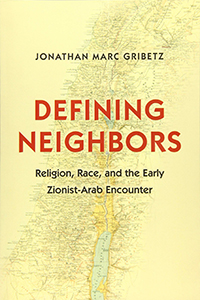
Jonathan Gribetz, Defining Neighbors: Religion, Race and the Early Zionist-Arab Encounter.
Princeton: Princeton University Press, 2014
Jewish immigration to Palestine started long before the establishment of the State of Israel; first within the Ottoman Empire and after the First World War within the British Mandate of Palestine. Although Zionists and Arabs might have an adversarial relationship today, in the early twentieth century, contact between Jews from Europe and Arabs in Palestine was not at all destined to develop into an unsolvable conflict. In this book, Jonathan Gribetz deeply examines the intellectual contacts between the Arab intellectual Muhammad Ruhi al-Khalidi of Jerusalem and lexicographer Eliezer Ben-Yehuda, who emigrated to Palestine in 1881 and is known as one of the founders of the Modern Hebrew language. As it turns out, despite concerns about mass immigration to Palestine, the two mainly emphasized that Arabs and Jews had great religious and cultural similarities.
Contact your faculty liaison
Is a book missing on this list, or would you like UBL to purchase a book about Israel, Palestine or the Israeli - Palestinian conflict that is not yet available in our collections? Contact our faculty liaisons.
